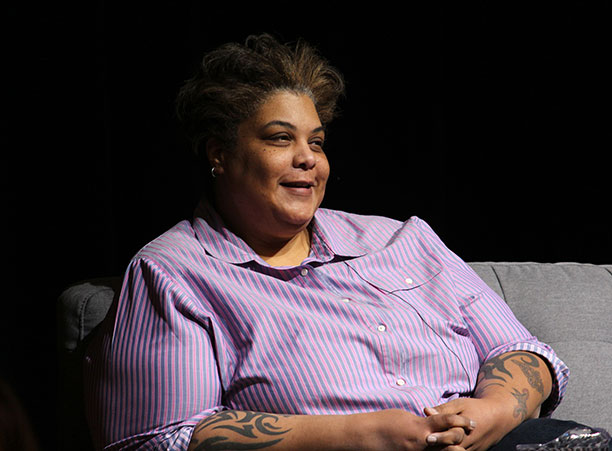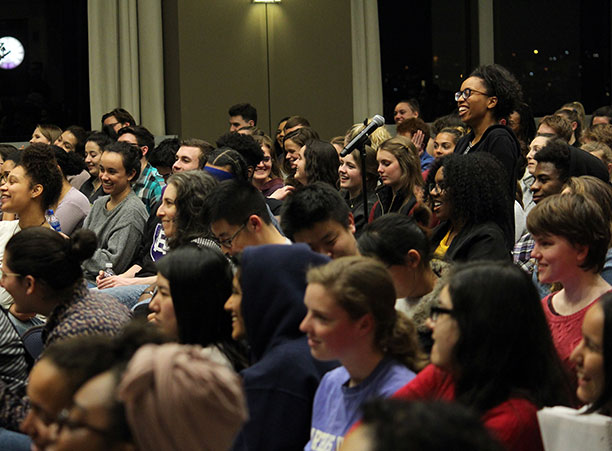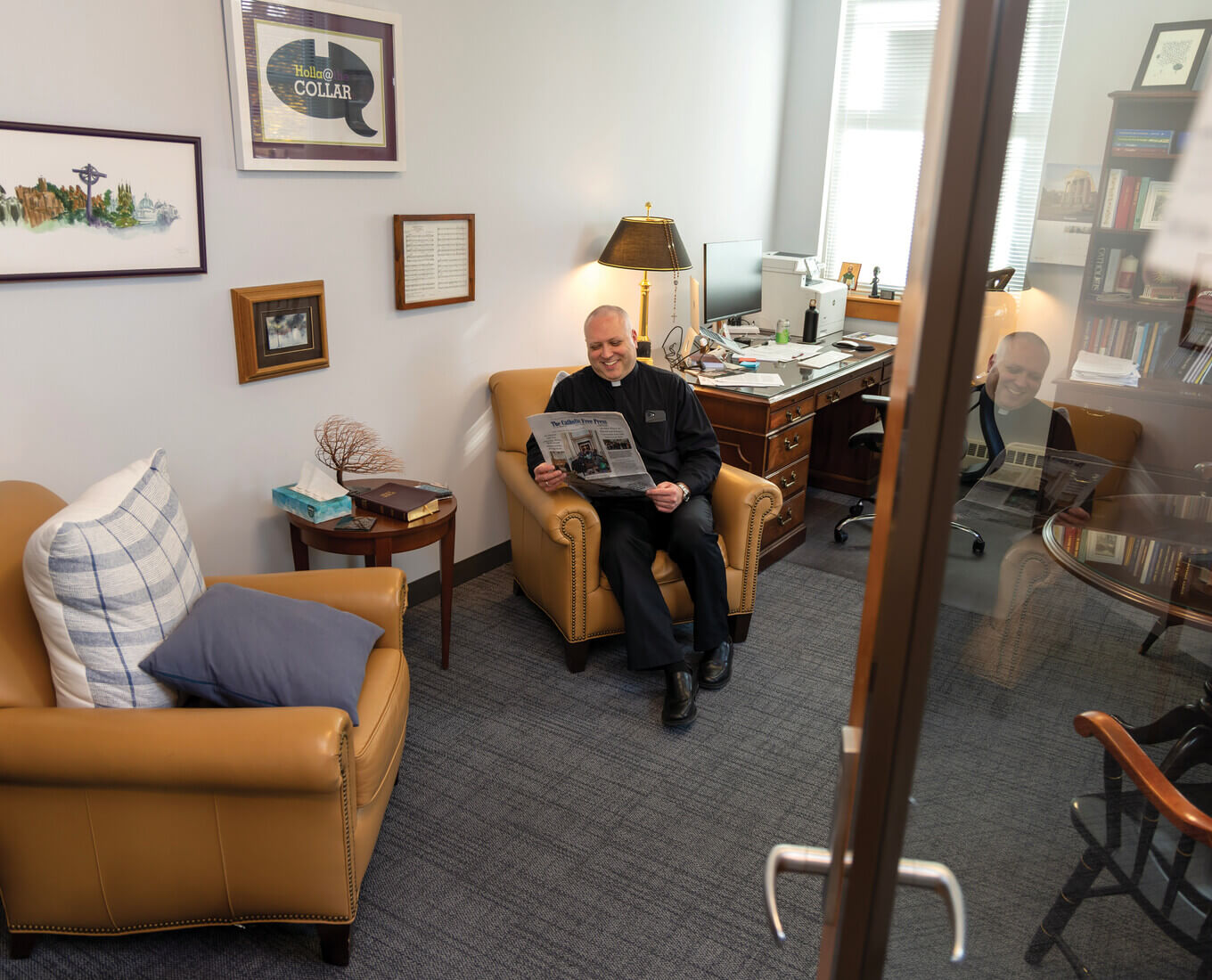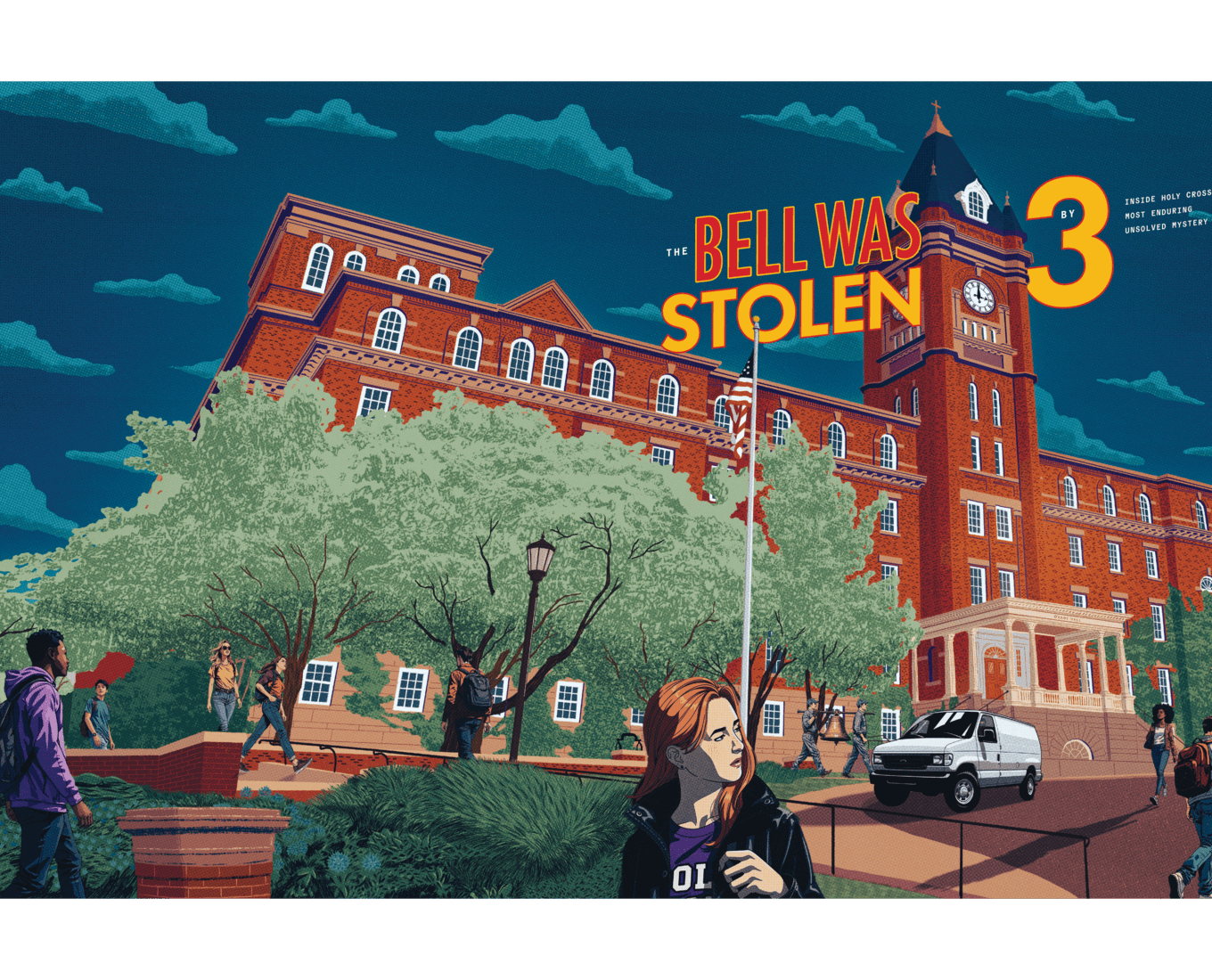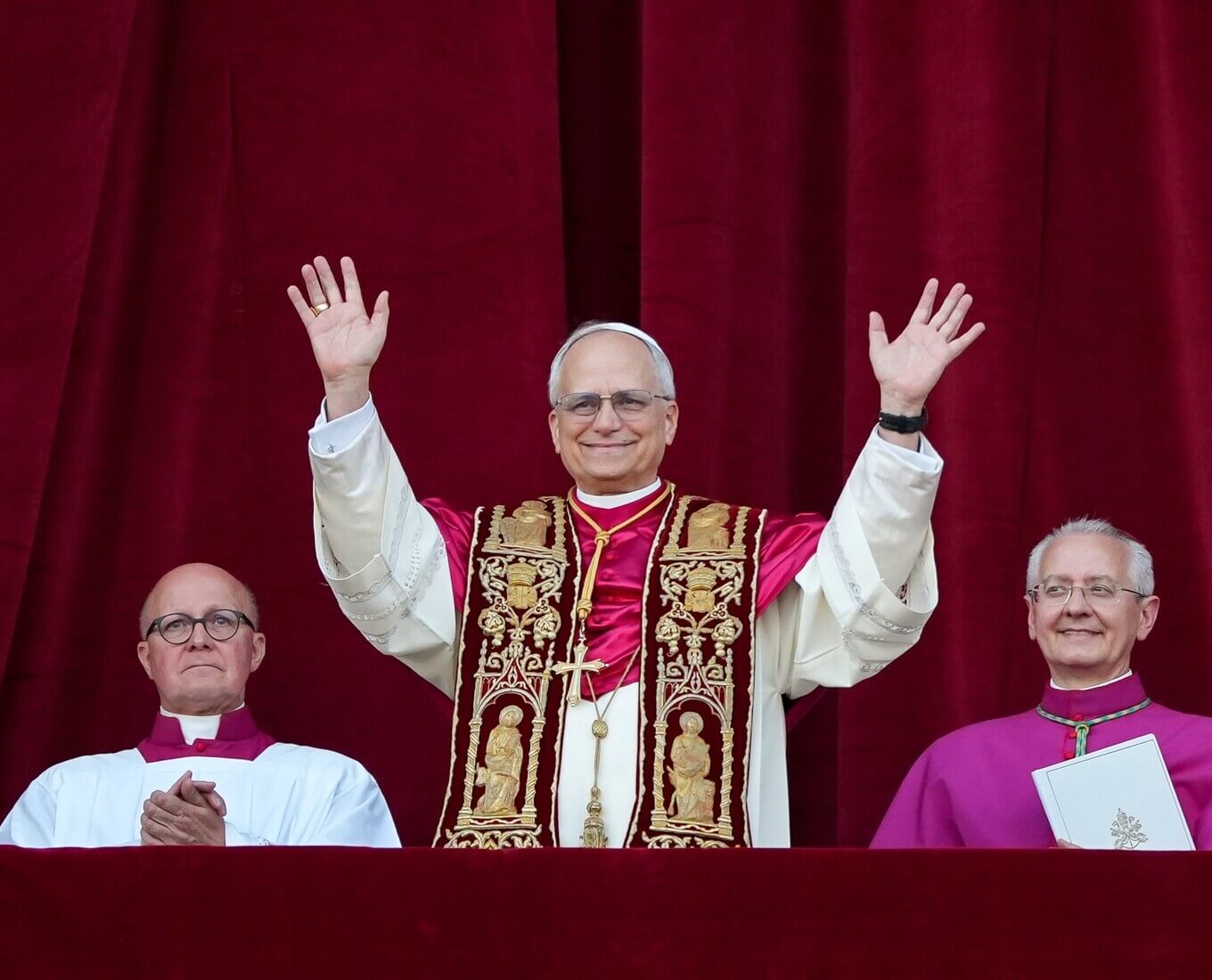"Oftentimes when you're marginalized, you're highly visible and also highly invisible; people look right through you but they also see you. This is a willful act, to both see somebody and pretend that they're invisible. There's a lot of intention in that."
That's what Roxane Gay told an electric audience of 500 students, faculty, and staff on Thursday, March 22 in the Hogan Ballroom.
Through the hour-long conversation, led by Greta Kenney, associate director of diversity and inclusion, Gay touched on current social justice issues, the nuances of privilege, the importance of teaching about mental and sexual health, and the difficult process of writing her recent memoir, "Hunger."
In one anecdote, the New York Times bestselling author and social commentator mentioned to students that when it comes to social justice, people often think they can only deal with one problem at a time.
"It's important to think about intersectionality, which is an unwieldy word for a very simple concept — the idea that we are more than just any one thing," she said. "We're not just women, we also have sexuality, gender identities, class backgrounds — and all of these things shape who we are."
Talking about the blockbuster film "Black Panther," the "Bad Feminist" author discussed how black art often has the burden of also being socially responsible.
"That's just not how it works and it shouldn't be that way," she said. "There's a lot of hype around Black Panther and I got a lot of stupid interview questions where reporters would ask, 'So, what would this have meant to you as a child growing up to finally have a black hero?' There's so much assumption in there. I had black heroes growing up. I was born in '74 — it wasn't the olden days. I have two parents and I'm Haitian, so I have a lot of heroes. So the idea that black people were just sitting around waiting for heroes is just shortsighted and absurd."
Whether talking with Kenney or taking questions from students, Gay approached each answer in a style for which she is widely known — insightful, relatable, and with a biting sense of humor.
Gay's ties to pop culture — being the first black woman writer for Marvel Comics, showing her intense love of Beyoncé ("Why Jay-Z?" is the first question she'd ask if given the opportunity to meet her hero), and interacting on her popular social media channels — ground deeply complex issues such as race, sexuality, and identity and make them relatable to a wide audience.
It's something that interested Tess Andrekus '18, the officer of diversity for the Student Government Association who was in charge of finding a keynote speaker to wrap up Unity Week on campus.
"My goal was to bridge the gap between people on campus who are really aware and involved in these issues and people who aren’t. How Roxane talks about pop culture encompasses everyone, and she brings a lot of justice and cultural critique and feminism and all these different themes into play."
Maia Lee-Chen '21 felt Gay's presence on campus was important.
"I can feel really discouraged, as a woman of color, and hearing Roxane talk about navigating spaces where she didn't feel welcome but she made a place for herself was really inspiring for me and important for me to hear."
Gay offered students advice about navigating these spaces.
"You have the right to be there, even if you don't get the external validation that you deserve. You should stay in that space and fight that good fight, until you can't," she said. "Because sometimes, it's exhausting to be the one in the room who brings up the difficult topics and takes the leadership position that nobody who looks like you has ever taken before. There's an emotional and psychological cost to that work. When you are not able to pay those costs, it's also okay. It's really about keeping a balance, because I think far too many of us overextend ourselves and fight even when we can't."
Roxane Gay Talks Feminism, Nuances of Privilege to Packed House
New York Times bestselling author addresses students in Unity Week keynote
Read Time
3 Minutes
